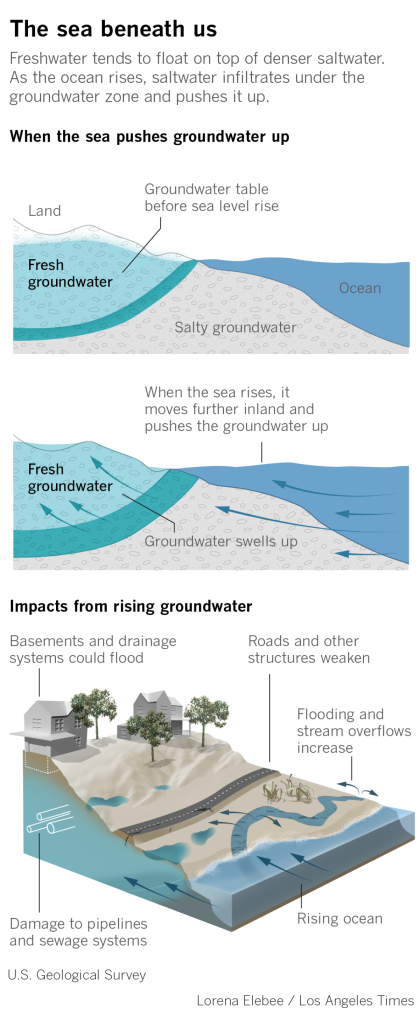Read a news release about the bipartisan Groundwater Rise and Infrastructure Preparedness Act, a bipartisan bill introduced by Reps. Kevin Mullin (CA-15) and Andrew Garbarino (NY-02).
In coastal regions throughout the United States, rising sea levels and extreme rainfall are causing groundwater levels to rise, creating problems for which few communities are prepared. Higher groundwater tables and saltwater intrusion can damage infrastructure, spread underground contamination, increase flooding risk, and contaminate freshwater supplies. The potential exposure and cost could exceed that of hazards from sea level rise alone.
Despite these risks, few governments and private entities are paying attention. State and regional adaptation plans, as well as FEMA flood maps, do not account for groundwater rise. This is particularly concerning since groundwater rise could render levees and seawalls ineffective.
To address these gaps, the Groundwater Rise and Infrastructure Preparedness Act will direct the United States Geological Survey (USGS) to:
1. Map and forecast future groundwater rise: USGS would develop maps that depict groundwater rise through 2100 for all coastal areas in the continental United States. The bill also directs the USGS to recommend improvements in research infrastructure for more accurate forecasting.
2. Study the impacts to infrastructure and public health: USGS would partner with the National Academies of Sciences, Engineering, and Medicine to examine the effects of groundwater rise on infrastructure (e.g., roads, utilities, sewers) and public health (e.g., pollutants and drinking water), and provide recommendations for mitigation strategies.
This bill is endorsed by American Coastal Coalition, American Planning Association, Association of State Floodplain Managers, National State Geographic Information Council, National Resources Defense Council, OneShoreline, Restore America’s Estuaries, San Francisco Bay Area Planning and Urban Research Association (SPUR), and Save the Bay.
Read the full bill text on Congress.gov.

